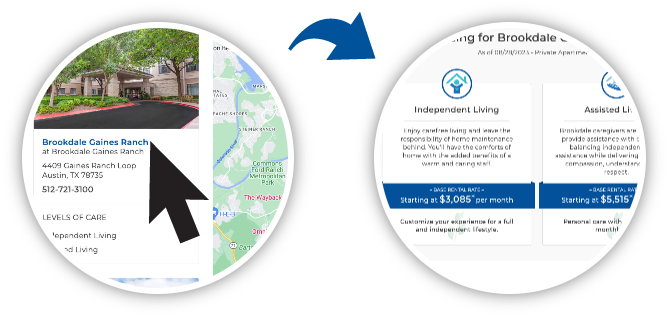- Home
- Brookdale Life
- Brookdale Blogs
- What’s the Beers List for Medications and How Do Healthcare Professionals Use It?
Health, Safety and Wellness, Brookdale Solutions
April 22, 2019
What’s the Beers List for Medications and How Do Healthcare Professionals Use It?
Taking medication, whether prescribed or over-the-counter, is common for seniors. According to Harvard Health, as you age your immune system weakens, leaving you more susceptible to infection, autoimmune diseases and chronic conditions. With the CDC reporting that more than 90 percent of older people using at least one prescription and more than 66 percent using three or more in any given month, managing medications becomes even more important for older adults.
So where do you find reliable information about safe and effective medications for seniors?
To keep up with the ever-changing pharmaceutical field, the American Geriatrics Society (AGS) publishes a resource for healthcare providers called the AGS Beers Criteria® for Potentially Inappropriate Medication Use in Older Adults. Also known as the Beers List, it includes medications that may not be the safest or the most appropriate choice for older adults. Frequently reviewed and updated, the latest list published this year.
The list describes medications that fall into one of five categories:
- Potentially inappropriate for older people
- Potentially inappropriate for older people with specific health conditions
- To be used with caution because of potentially harmful drug interactions
- To be used with caution because of potential side effects
- To be avoided or used at different doses for people with reduced kidney function
Understanding which medications you should potentially avoid or use with caution helps healthcare providers, caregivers and seniors work together to make sure drugs are used properly.
Some of the drugs on the list include over-the-counter medications. For example, diphenhydramine, otherwise known as Benadryl, which is also an ingredient in Tylenol PM or Advil PM, is listed as a medication that is potentially inappropriate for many older adults. The drug can cause exaggerated side effects in seniors.
A family member trying to be helpful might encourage an older adult to use something like Benadryl, not realizing that, while it’s OK for younger adults, it’s potentially inappropriate for seniors.
Long-term use of NSAIDs, nonsteroidal anti-inflammatory drugs like aspirin or ibuprofen, is also on the list. The Beers List notes that they can increase the risk of gastrointestinal issues, like ulcers and indigestion, increase blood pressure and affect your kidneys. Further research done by the National Institutes of Health found that a daily dose of aspirin has no healthy effect on the lifespan of healthy seniors.
Here are some tips to help you and your family manage medications that are included in the AGS Beers Criteria®.
- If you have concerns or questions about medication on the Beers List, talk to your physician. There are times when the benefits outweigh the risks for some of these medications and it’s important to discuss the benefits of higher risk medications with your doctor. Ask what the side effects your prescriptions can cause and watch for them. Consult your doctor if you are concerned.
- Consult with your pharmacist. Keep a list of all the medications and dosage you take and ask for a medication review, particularly as it relates to higher risk medications for seniors. Also, you should review possible drug interactions for both prescribed and over-the-counter medications.
- Get your family on board to help. Your adult children can help you review the list of your current medications and schedule time for a conversation with your healthcare provider.
In the end, knowledge is power. Talk to your healthcare professional about the Beers List and learn more about how you can reduce the risk of medications creating more problems than they are treating.
The above content is shared for educational purposes only. You must consult your doctor before acting on any content on this website, especially if you have a medical condition. The content is not intended to be a substitute for professional medical advice, diagnosis, or treatment. Never disregard professional medical advice or delay in seeking it because of something you have read on our site.
Categories
- Alzheimer's & Dementia
- Caregiver's Corner
- COVID-19
- Health, Safety and Wellness
- Financial Well-Being
- Passion & Purpose
- The Journey to Senior Living
- Trending Now
- Socialization & Relationships
- Brookdale Solutions
- Brookdale Vision and Growth
Archives
View All
- October 2025
- September 2025
- August 2025
- July 2025
- June 2025
- May 2025
- April 2025
- March 2025
- February 2025
- January 2025
- December 2024
- November 2024
X
Let us help find the right community for you!
Complete the form and a Senior Living Advisor will be in touch!
Inside Brookdale Communities
See what’s happening on our community Instagram pages
Brookdale has communities near you!



